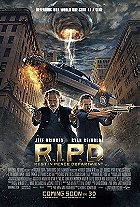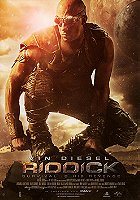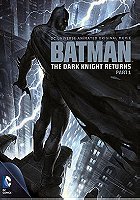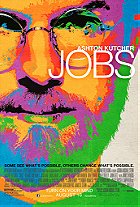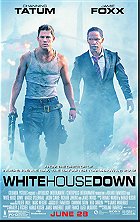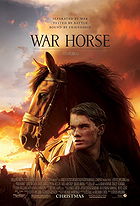Successfully adapting Frank Miller's groundbreaking comic book series The Dark Knight Returns for the screen represented a daunting challenge for any moviemaking team, as it's often perceived as unfilmable. But executive producer Bruce Timm and his team at Warner Bros. Animation rose to the challenge nevertheless, creating a two-part epic for the fifteenth and sixteenth instalments of their series of DC Universe animated original movies. 2012's Batman: The Dark Knight Returns, Part 1 proved to be a successful endeavour, but Part 2 is even better, an amazing conclusion that satisfies on practically every level. It's a lavishly produced animated movie that confidently stands on its own, drawing interpretations from the source material to create a smart, thematically dense and ultraviolent Batman story that belies its modest straight-to-video origins.

Picking up from where Part 1 ended, Part 2 finds Two-Face and the Mutant Leader defeated, with the Mutant Gang becoming fractured as a result. When Commissioner Gordon (David Selby) retires, the new police commissioner, Ellen Yindel (Maria Canals-Barrera), declares Batman to be an outlaw and begins aggressively working to arrest the Caped Crusader. Bruce Wayne (Peter Weller) is sparked back into action when the Joker (Michael Emerson) stages an escape and mass murder on live television, hitting the streets to plot his next elaborate killing spree. With an apocalyptic nuclear crisis looming that involves Russia, the President recruits Superman (Mark Valley) to deal with both the Dark Knight and the Russians.
Batman: The Dark Knight Returns, Part 2 features a host of familiar faces for anyone immersed in Batman lore; not only Commissioner Gordon and Alfred, but also Selina Kyle, who has an integral role in the film. What's interesting about The Dark Knight Returns is the sheer brutality and intelligence that it introduces, retaining a lot of the facets that made Miller's comic book such a standout back in the 1980s. The source material is fundamentally R-rated, and the makers here did as much as they could within the restraints of a PG-13 rating, even including a faithful representation of Bruno, a topless muscular female with Nazi swastikas covering her nipples. The story also reimagines several characters; Batman's age is factored into the tale, as he's not as fast or as strong as he used to be. Likewise, Selina Kyle is not what she used to be, and you're in for a shock if you expect her to be as slim and sexy as she once was. Unfortunately, like its predecessor, Part 2 lacks the voiceover narration of Miller's books. The exclusion is not as glaring as it was in Part 1, but the occasional window into Batman's inner psyche would've made for a more complete experience, especially since voiceover was used for 2011's Batman: Year One.

For a straight-to-video production, The Dark Knight Returns, Part 2 features extraordinary visuals, with fluid, detailed animation evoking the pages of Miller's miniseries. The action set-pieces are particularly impressive; you feel every brutal punch, kick and takedown. Plus, director Jay Oliva does not baulk from showing violence, orchestrating some exceedingly bloody images that render this adaptation inappropriate for young fans of the Caped Crusader. Some scenes are especially visceral and dark, most notably when the Joker wanders through an amusement park with a Batarang jutting out of his eye, casually shooting all the innocents in his path. It's chilling to see such a massacre, and the Joker's last laugh is disturbing. Added to this, the score by Christopher Drake is stunning. To witness such technical accomplishments in a straight-to-video project like this is nothing short of a miracle.
Without a doubt, the crowning achievement of The Dark Knight Returns, Part 2 is the showdown between Batman and Superman, a sequence that many nerds have dreamed about seeing for years. It's incredible to see the Dark Knight in an armoured suit standing his ground against Superman, putting both his skills and smarts to use as he goes toe-to-toe with the invincible Kryptonian. Each iconic moment from Miller's story is thankfully given its due attention, rendered with gorgeously detailed animation. And it's not just a battle of punches and kicks, but a confrontation of ideologies, too; Superman maintains that Bruce has crossed a line, while Batman highlights that the Man of Steel has sold out and forgotten what he stands for. Furthermore, the voice acting is superb. Weller's voice as Bruce Wayne/Batman was a bit weary in Part 1, but he becomes gruffer here, transitioning from worn-out geriatric to hardened crime fighter. Ariel Winter, meanwhile, continues to give the production some spirit, and Mark Valley makes for a perfectly good Clark Kent/Superman. Fortunately, Michael Emerson ably steps into the role of the Joker; he's no Mark Hamill, but he is creepy and menacing.

Even though the combined running time of the two parts of The Dark Knight Returns is less than Christopher Nolan's The Dark Knight Rises, the production "out-epics" Nolan's trilogy capper in every way. Whereas Nolan insists on moralistic discussions that unreasonably prolong the lengths of his films, The Dark Knight Returns is lean and smart, and its muscular action scenes absolutely shit on Nolan's set-pieces. On the whole, The Dark Knight Returns takes the breath away. Part 1 was great, but Part 2 is the real meat and potatoes, going for the jugular and never letting up. This may not be the live-action Dark Knight Returns adaptation that fans have wanted since 1986, but it's about the best that we can expect from a straight-to-video animated production. And if this is the only adaptation we ever get, that's perfectly fine.
8.5/10
 Login
Login
 Home
Home 183 Lists
183 Lists 1674 Reviews
1674 Reviews Collections
Collections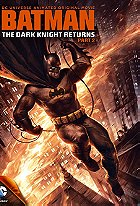
 0 comments,
0 comments, 



